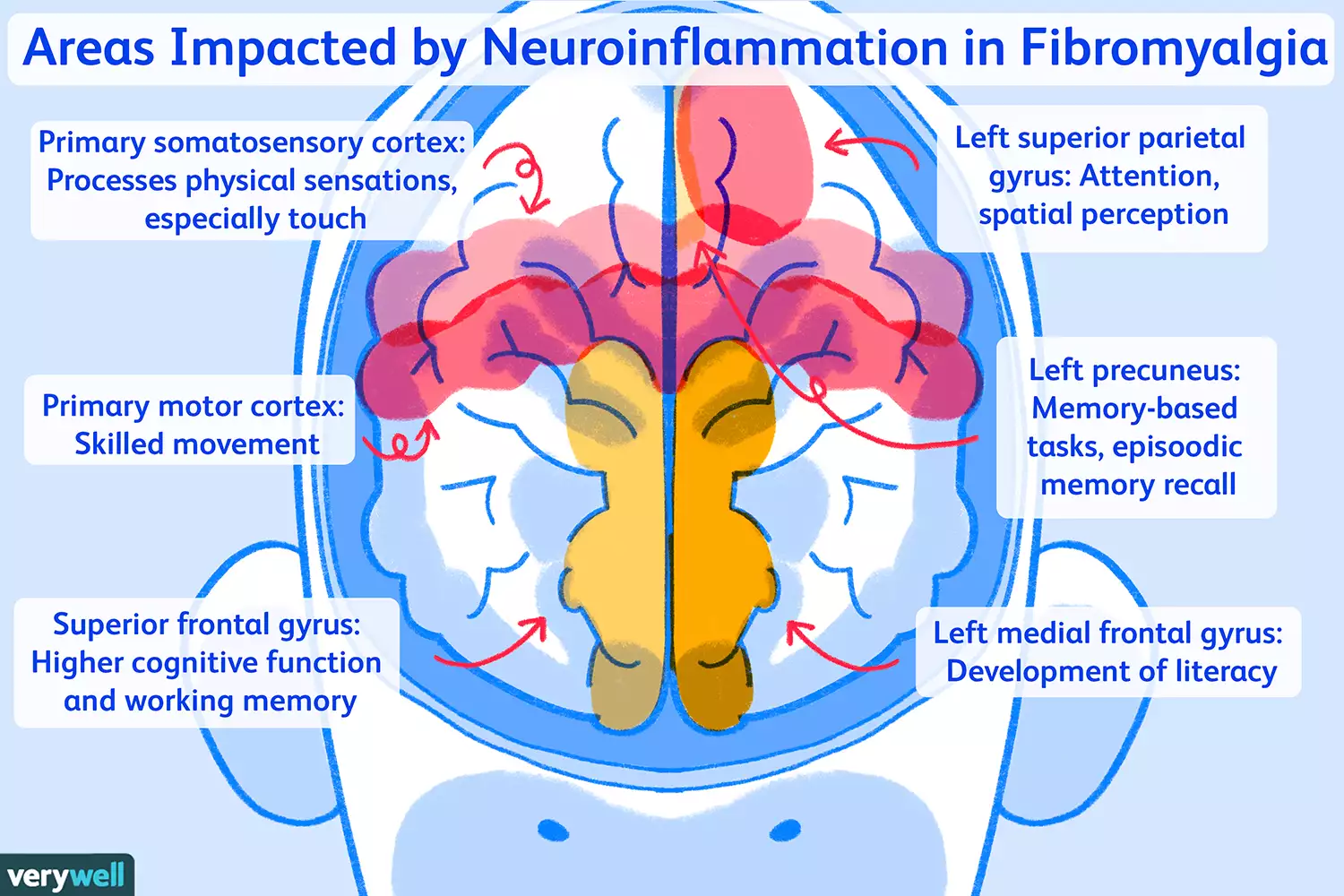By Emily Lockhart Medically Reviewedby Dr. Gerald Morris Table of Contents Listen to article Causing widespread pain to an estimated 4 million people in the United States, fibromyalgia is a musculoskeletal disorder that amplifies the way the brain processes pain, often leaving the body’s pain receptors in hyperdrive. The condition causes widespread pain—and in turn fatigue, sleep deprivation, and depression—and typically begins following some type of severe physical trauma, such as an accident, surgery, or massive psychological stress. Fibromyalgia patients complain of a myriad of symptoms associated with pain throughout the entire body. Here…
Read MoreCategory: Fibromyalgia symptoms
What are the Early Signs of Fibromyalgia?
“Fibromyalgia is a chronic condiion that causes widespread pain around the body. This stems from an issue associated with how the nervous system processes pain signals.Fibromyalgia also causes symptoms such as tiredness, depression, & mental fog.Doctors may not immediately consider fibromyalgia when evaluating these types of symptoms, because pain is also common with many other conditions. That’s one reason why it takes an average of five years for people with this disorder to get diagnosed” [1], & why it is absolutely crucial to consult an Experienced Pain Specialist Making a Record…
Read MoreFibromyalgia Is An Autoimmune Disease?
Fibromyalgia is a condition that causes chronic pain throughout the body, fatigue, anxiety, and nerve dysfunction. Today, it affects the life of 4 million people in the US alone and, if left untreated, it can lead to disability. Given that there is no definitive cure for fibromyalgia, treatments primarily aim to ease its symptoms. Despite how common and debilitating this condition is, its “invisible” nature has led to a delay in the research on its causes, symptoms, and prognosis. Certainly, with clinical trials only starting in the 1980s, a lot is yet to be understood…
Read MoreAutoimmunity and Neuroinflammation in Fibromyalgia
By Adrienne Dellwo Table of Contents Fibromyalgia (FM) may be an autoimmune disease, where your immune system attacks healthy cells by mistake. For years, the evidence seemed to point away from that. This issue is still far from decided, but opinion may be swaying back toward autoimmunity. Some research suggests FM may be an autoimmune disease involving neuroinflammation, an inflammatory response within the brain and spinal cord, and small-fiber neuropathy, which is weakness and pain from nerve damage.1 That hypothesis isn’t getting widespread acceptance in the medical community, though. This article looks at what…
Read MoreWhat’s The Difference With Fibromyalgia and Lupus ?
By Adrienne Dellwo Table of Contents Pain. Fatigue. Malaise. These symptoms are just part of life when you have fibromyalgia (FMS) or lupus. When you have both fibromyalgia and lupus, you get a double helping of those symptoms, in addition to the other symptoms of both conditions. FMS and lupus are both hard to diagnose, and because their primary symptoms can be very similar, people with FMS are sometimes misdiagnosed as having lupus, and vice versa. A sizable number of people have both conditions, which complicates diagnosis and treatment. Therefore, it’s important for those with FMS…
Read MoreWhat Are the Symptoms of Fibromyalgia?
You’ve been feeling run down lately. Tired, achy, everything hurts. You can’t concentrate. You can’t sleep. You don’t feel like… you. It’s like you have the flu, but you don’t have a fever and you’re not getting better. Your doctor says nothing seems to be wrong, but the symptoms persist. What’s happening? It’s possible that it could be fibromyalgia, a chronic pain disorder. Here’s how to recognize the red flags of this condition, and where to get help. Basics Refresh: What Is Fibromyalgia? Fibromyalgia (sometimes shortened to just “fibro”) is a…
Read More16 Conditions Commonly Mistaken for Multiple Sclerosis
Many disorders share symptoms with MS, sometimes complicating its, or their, diagnosis. By Becky Upham Medically Reviewed Getting a correct diagnosis of multiple sclerosis (MS) can be a challenge. In fact, a study published in May 2019 in the journal Multiple Sclerosis and Related Disorders suggested that nearly 1 in 5 people with other neurologic conditions are mistakenly diagnosed with MS. These errors in diagnosis likely result from the fact that there is no single test that can determine an MS diagnosis conclusively. Also, not everyone has all of the common symptoms of MS, such as numbness, tingling, pain, fatigue,…
Read MoreThe link between fibromyalgia and irritable bowel syndrome
Posted by Master, Doctor Mai Vien Phuong – Gastrointestinal Endoscopy – Department of Examination & Internal Medicine – Vinmec Central Park International General Hospital Fibromyalgia and irritable bowel syndrome (irritable bowel syndrome) are disorders associated with chronic pain. So what’s the link between fibromyalgia and irritable bowel syndrome? 1. Fibromyalgia Symptoms Fibromyalgia symptoms in women are often more severe than in men. Women are more likely to have widespread pain, irritable bowel syndrome symptoms, and morning fatigue than men.The transition to menopause in women can make fibromyalgia worse. 2. Fibromyalgia…
Read MoreFibromyalgia Tender Points: What and Where Are They?
And does counting tender points in fibromyalgia even still matter? If you’ve started researching fibromyalgia, you’ve probably come across the phrase “tender points” by now. You may have wondered what tender points are, if you have tender points, and what tender points can tell your physician about whether or not you have fibromyalgia and how it’s being managed. Here, learn more about the role of tender points in fibromyalgia, the history of counting tender points when diagnosing patients, and whether counting tender points even still matters today. What Are Fibromyalgia Tender…
Read More16 Things to Stop Doing If You Have Fibromyalgia
Julie Ryan Get hand-picked resources and highlights from our Mighty community straight to your inbox. This story is based on an article I read called “30 Things to Stop Doing to Yourself.” As I read it, I couldn’t help but think just how true so many of them are and that certain ones are especially appropriate for those of us suffering from fibromyalgia, chronic fatigue syndrome and other debilitating conditions. Here are 16 things I believe those of us with fibromyalgia need to stop doing: 1. Stop putting your own needs on…
Read More








